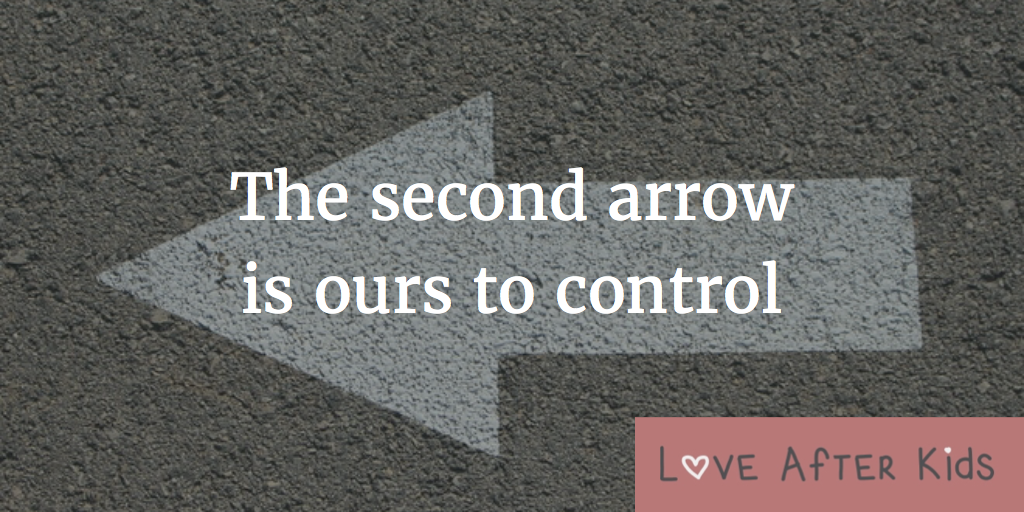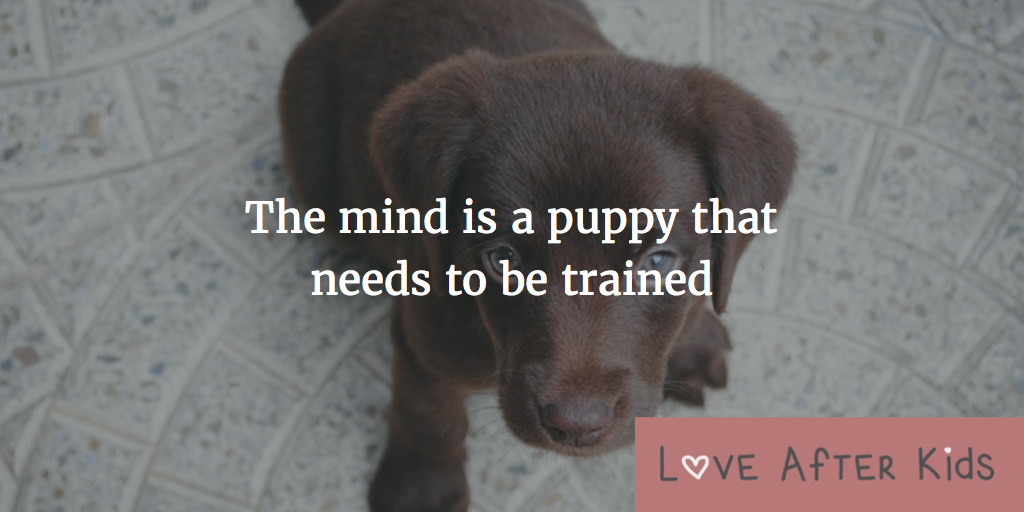When negative experiences occur, the aversion is reflexive. Our sympathetic nervous systems get triggered, producing hormones like cortisol and norepinephrine that facilitate action and self-protection.
Our minds react in kind with anxiety about the impact of the experience, fear about the repercussions, projections into the future regarding the possible impacts and wishing the experience would be other than it is:
"When touched with a feeling of pain, the uninstructed run-of-the-mill person sorrows, grieves, & laments, beats his breast, becomes distraught. So he feels two pains, physical & mental. Just as if they were to shoot a man with an arrow and, right afterward, were to shoot him with another one, so that he would feel the pains of two arrows; in the same way, when touched with a feeling of pain, the uninstructed run-of-the-mill person sorrows, grieves, & laments, beats his breast, becomes distraught. So he feels two pains, physical & mental...
Now, the well-instructed disciple of the noble ones, when touched with a feeling of pain, does not sorrow, grieve, or lament, does not beat his breast or become distraught. So he feels one pain: physical, but not mental. Just as if they were to shoot a man with an arrow and, right afterward, did not shoot him with another one, so that he would feel the pain of only one arrow. In the same way, when touched with a feeling of pain, the well-instructed disciple of the noble ones does not sorrow, grieve, or lament, does not beat his breast or become distraught. He feels one pain: physical, but not mental..."
"Sallatha Sutta: The Arrow" (SN 36.6), translated from the Pali by Thanissaro Bhikkhu. Access to Insight, 30 June 2010,http://www.accesstoinsight.org/tipitaka/sn/sn36/sn36.006.than.html
Therapy is essentially the art of working with the second arrow. We do not try to change what cannot be changed. We attempt to remove ourselves from the grasp of our minds enough to observe and understand what is happening.
When we can receive and participate in an experience and then step back to observe it, we are training our minds in the practice of non-identification.
It is the nature of our minds to identify with experiences and treat them as part of our identities versus as something inherently fleeting, meant to come and go like a breeze or a thunderstorm.
Nothing in nature is permanent. When we identify with experiences, attempting to cling to them or push them away, we create the illusion of permanence and the illusion of an identity that depends upon these experiences.
For example, if something happens that makes you feel sad and you react to it by coming up with reasons why it is happening and then by trying not to feel the sadness, which only creates more tension and pain, you take a temporary state and make it into an ongoing trait.
After x amount of time of experiencing this sadness, you start to think of yourself as a sad or depressed person. You project this onto the world and receive feedback that affirms it. You become inadvertently attached to this notion of self. These are all the actions of the second arrow.
It's important to understand the nature of the mind. The mind thrives on control, solving problems, reducing and compartmentalizing. The mind, left to its own devices separates you from the world. It is linear and causal.
Jack Kornfield, psychologist and author, compares the mind to a puppy. Puppies react impulsively to all stimuli. This is simply part of the nature of puppyhood.
An untrained puppy will continue to jump at every stimulus and an untrained mind will do the same.
When you train a puppy, you do it with consistency, firmness and love. The same goes for training the mind. Living life with an untrained mind leaves you at the mercy of your experiences.
How does this apply to couples and relationships?
- Us versus them: The more deprived we feel in our relationships, the more bifurcated things become and the less we are able to hold different versions of the story. It becomes more about right and wrong than about hearing and understanding both sides.
- Stuck in the narrative: Stuckness implies rigidity and attachment to a narrative, usually where one feels victimized and wronged. These feelings lead to expectations of more of the same and create self-fulfilling prophecies.
- Jumping at stimuli: Couples in conflict tend to be reactionary. Triggers set off inflammatory reactions, feeding the cycle of attack and defend and maintaining the status quo.
The cycle embodies the patterns and reflexive reactions and triggers. I help them to create a new narrative where they can both observe and understand their cycles. Does this sound familiar?
This process of understanding the cycle mirrors the process of training the mind that I described earlier. Stepping outside of the cycle creates the necessary space for understanding and movement.
The first course that will be available in the Love After Kids program is on getting unstuck; identifying and breaking your cycle. Please sign up below for updates and new blog posts.




 RSS Feed
RSS Feed